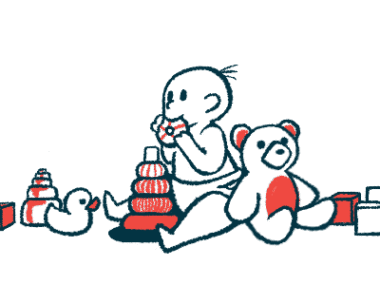On Becoming the Proudest of Soccer Moms
Written by |

When my 6-year-old daughter, Austen, was born, she seemed completely “normal” for the first five months of her life. She was born without complications and hit her developmental milestones according to a normal schedule.
Like any mother, I dreamed of the things she would grow up to do, including not only careers and motherhood, but also childhood sports, school, and summer camp. I wasn’t sure whether she’d be a gymnast or a cheerleader like me, or perhaps she’d decide to play baseball like her dad and uncles. But I knew I would cherish whatever it was with the pride that only a mother can possess.
But then in November 2015, the seizures started and didn’t stop. My dreams of Austen’s future slowly changed. This was especially true during the detrimental period — which I call the “dark times” — when Austen, who has Dravet syndrome, was having up to 10 tonic-clonic seizures a day and her body and mind were so tired that she could barely stay awake on many days, much less progress cognitively or developmentally.
Before I realized what had happened, I’d stopped dreaming of Austen doing somersaults on a gymnasium floor and instead prayed that she would survive until her next birthday.
Then, in July 2019, Austen was able to start treatment with Fintepla (fenfluramine), and slowly but surely her seizures began to spread out. Not only was she able to start learning again because of Fintepla, but she also could start living again.
Now, almost three years later, Austen is still delayed, but she’s slowly closing the gaps begun during the dark times. It will take time, but I’m so happy with how far she has come.
This spring, I was getting everything together to sign Austen’s 8-year-old brother, Atlas, up for baseball when Austen asked if she could play, too. After talking with her dad, we decided that baseball probably wasn’t the best option, as we weren’t comfortable with a game involving hard balls flying toward a player’s head. But we agreed that she might be able to try a different sport.
We discussed our options and decided that soccer might be a good idea for her. Austen has a lot of energy, and our town’s soccer program isn’t too intense for her age group.
It turned out to be a great decision. Austen’s coach is amazing with her. He has been so patient in teaching her the game and keeps her motivated while she’s out there playing. He also lets her sit out if her energy gets low and doesn’t care when she constantly tries to hug him.
Austen’s teammates also are very accepting of her. They help her stay focused and watch for the ball, and have even offered to stay by her so that she’s not left behind when she’s tired and can’t run as fast as them.
Something I couldn’t even imagine three years ago is now playing out in front of me on the soccer field every weekend, thanks largely to her Fintepla treatment. My girl is out there playing, and I’m shouting along with the other parents on the bleachers. I no longer must pray for her to simply survive her childhood — instead, I can watch her thrive in the midst of it.
Note: Dravet Syndrome News is strictly a news and information website about the disease. It does not provide medical advice, diagnosis, or treatment. This content is not intended to be a substitute for professional medical advice, diagnosis, or treatment. Always seek the advice of your physician or other qualified health provider with any questions you may have regarding a medical condition. Never disregard professional medical advice or delay in seeking it because of something you have read on this website. The opinions expressed in this column are not those of Dravet Syndrome News or its parent company, Bionews, and are intended to spark discussion about issues pertaining to Dravet syndrome.






Leave a comment
Fill in the required fields to post. Your email address will not be published.